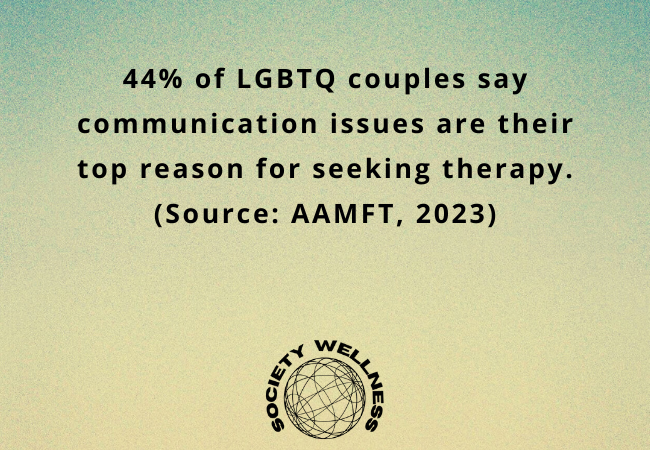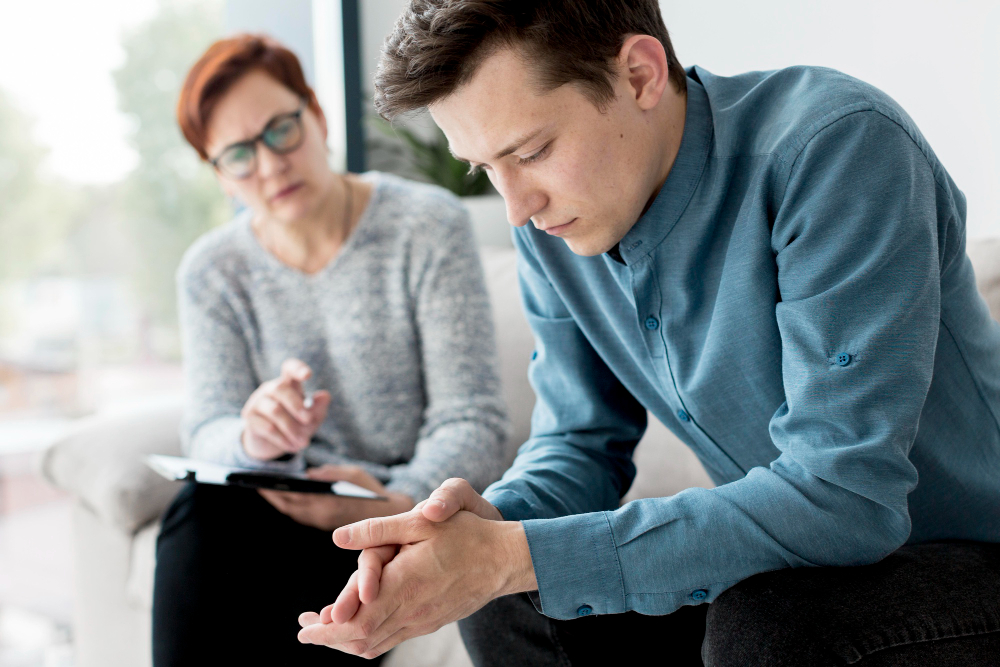Taking the step to begin LGBTQ couples therapy Massachusetts is a powerful move toward healing, growth, and deeper connection. For many LGBTQ couples, this journey is especially meaningful — not just because of the challenges they’ve faced, but because affirming support may have felt out of reach in the past.
At LGBTQ Behavioral Health Center Massachusetts, we understand that the first therapy session can feel exciting, emotional, and a little intimidating. That’s why we’ve created this guide — to help you feel informed and empowered about what to expect during your very first session of LGBTQ couples counseling Massachusetts.
Why Couples Seek LGBTQ Therapy Massachusetts
Before we dive into what the first session looks like, let’s acknowledge why many LGBTQ couples seek therapy:
- Communication struggles or frequent conflict
- Emotional disconnection or loss of intimacy
- Navigating identity exploration within the relationship
- Rebuilding trust after a breach or betrayal
- Facing external pressures (e.g., family rejection, societal stigma)
- Mental health challenges affecting the relationship
- Planning for the future: family, marriage, shared goals
No matter the reason, queer affirmative therapy Massachusetts offers an inclusive, affirming environment tailored to your unique needs.
Before You Arrive: The Intake and Scheduling Process
When you schedule your first session at LGBTQ Behavioral Health Center Massachusetts, the process begins with a friendly intake. You can expect:
- A confidential call or online intake form
- Questions about your relationship history, therapy goals, and concerns
- An introduction to our services, including LGBTQ Intensive Outpatient Program Massachusetts (IOP) or LGBTQ Partial Hospitalization Program Massachusetts (PHP) if individual support is also needed
- A match with an LGBTQ-affirming therapist best suited for your goals and identities
You’ll also choose a format that works best — in-person, virtual, or hybrid.
What Happens in the First LGBTQ Couples Counseling Session?
Your first session is about creating safety, setting intentions, and beginning the journey. Here’s what you can typically expect:
1. A Warm and Affirming Welcome
Your therapist will begin by creating a nonjudgmental space where both of you feel seen, respected, and validated. You’ll be encouraged to:
- Share your pronouns, identities, and relationship dynamic
- Talk about any previous therapy experiences (positive or negative)
- Establish comfort with the therapist and the process
This is your opportunity to relax, settle in, and take a breath — you’re in a safe space.
2. Getting to Know You as a Couple
Next, your therapist will explore your relationship story. You may be asked to share:
- How you met and your early connection
- Major milestones in your relationship
- Strengths in your relationship you’d like to build on
- Current challenges or areas of concern
This gives your therapist a foundation for understanding your dynamic and how best to support you.
3. Discussing Goals for Therapy
One of the most important parts of the first session is setting goals. Your therapist will ask each of you questions such as:
- What motivated you to seek couples therapy now?
- What are your hopes for the relationship?
- What would “success” in therapy look like for you?
These questions help align your therapeutic journey, whether you’re working on communication, healing after conflict, or rediscovering emotional intimacy.
4. Clarifying Boundaries and Expectations
Therapy works best when there’s clarity and mutual understanding. Your therapist will explain:
- Confidentiality and its limits
- What you can expect in each session
- How to handle disagreements that may arise in therapy
- How and when individual sessions may be recommended
If relevant, the therapist may also discuss how additional support (like LGBTQ IOP Massachusetts or LGBTQ PHP Massachusetts) can complement couples therapy if individual concerns surface.
5. Starting the Work (Gently)
While the first session is largely about setting the stage, your therapist may also introduce:
- Ground rules for communication
- A short initial exercise (such as reflective listening or a check-in prompt)
- Homework, like journaling or practicing a mindful conversation
You’ll leave feeling like you’ve taken a meaningful step forward — not just talked about problems, but begun to work through them.
What Makes LGBTQ Couples Therapy Different?
LGBTQ couples therapy Massachusetts is built on a foundation of empathy, inclusion, and cultural awareness. It acknowledges:
- That societal stigma affects relationship dynamics
- That love may have developed in secrecy or fear
- That identity evolution can shift relationship roles
- That public invalidation (or family rejection) can impact emotional intimacy
With queer affirmative counselling Massachusetts, your relationship isn’t just accepted — it’s celebrated.
Common Concerns First-Time Couples Have (And How Therapy Eases Them)
It’s normal to feel unsure before your first session. Some common questions we hear include:
“What if one of us is more invested than the other?”
Therapists are skilled at meeting each partner where they are. The goal is not to assign blame, but to understand each person’s needs and pace.
“What if we disagree or argue during the session?”
That’s okay. Therapy is a space for real emotions. Your therapist will guide you both back to safe, productive dialogue.
“What if we’re not sure whether we want to stay together?”
Couples counseling isn’t just about staying together — it’s about clarity. If separation is on the table, therapy helps you make that decision with mutual respect and emotional maturity.

When Might Individual Therapy or PHP/IOP Be Recommended?
In some cases, individual concerns like trauma, addiction, or mental health disorders affect the relationship. Your therapist may recommend supplemental care through:
- LGBTQ Partial Hospitalization Program Massachusetts: For clients needing daily support with emotional regulation or psychiatric care
- LGBTQ Intensive Outpatient Program Massachusetts: For flexible, focused care that fits with couples therapy
- Individual therapy to process personal experiences that affect the relationship
This layered approach ensures both you and your relationship receive holistic care.
How to Prepare for Your First LGBTQ Couples Therapy Session
Preparation can help reduce anxiety and improve your session. Consider:
- Talking with your partner about your hopes and hesitations
- Making a list of challenges you want to address
- Being honest about your emotional state
- Bringing up any past therapy experiences (positive or negative)
- Entering with an open heart and mind
Remember: you don’t need to “perform” — you just need to show up as you are.
Why Choose LGBTQ Behavioral Health Center Massachusetts?
When starting something as important as couples counseling, you deserve care that truly gets you. Here’s why couples choose us:
- LGBTQ-Affirming, Compassionate Therapists
Our clinicians understand LGBTQ identity, intersectionality, and relationship dynamics. - Queer Affirmative Therapy Massachusetts
Your love, stories, and identities are respected and celebrated. - Integrated Mental Health Programs
We offer deeper support through LGBTQ PHP and LGBTQ IOP Massachusetts when needed. - Safe, Inclusive, Confidential Environment
A space to feel heard, seen, and supported — without fear of judgment. - Flexible Formats and Personalized Approach
Virtual, in-person, or hybrid options tailored to your life and comfort.
Conclusion
Taking the first step toward LGBTQ couples therapy Massachusetts may feel uncertain — but it’s also brave, hopeful, and filled with possibility.
Whether you’re in crisis or simply feeling distant, that first session opens the door to healing, clarity, and growth. Call LGBTQ Behavioral Health Center Massachusetts today at 888.964.8116. Let us help you and your partner begin a journey that’s rooted in compassion, communication, and connection — every step of the way. Because your relationship is worth it. And you don’t have to navigate it alone.
FAQ on LGBTQ Couples Counseling Session
What happens during the first LGBTQ couples counseling session?
You’ll meet your therapist, discuss your relationship history, set goals, and begin exploring communication styles and shared concerns in a safe space.
How should we prepare for our first LGBTQ couples therapy session?
Come with an open mind, reflect on your goals, be ready to share, and discuss what you both hope to gain from therapy.
What if we argue during the session?
Conflict is okay. Your therapist is trained to guide you back to respectful, productive dialogue and help you learn from disagreements.
Is LGBTQ couples counseling Massachusetts only for serious issues?
Not at all. It’s also great for improving communication, planning for the future, or building emotional intimacy — even if you’re not in crisis.
Can we access individual support in addition to couples counseling?
Yes. We offer LGBTQ Partial Hospitalization Program Massachusetts (PHP), LGBTQ Intensive Outpatient Program Massachusetts (IOP), and individual therapy for holistic care.

